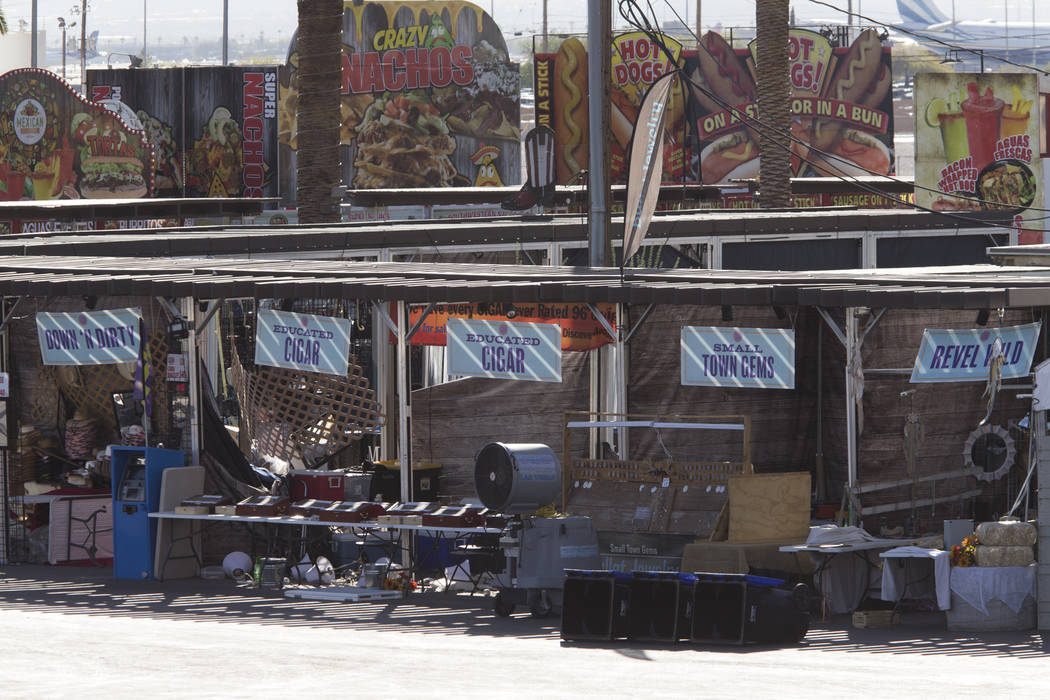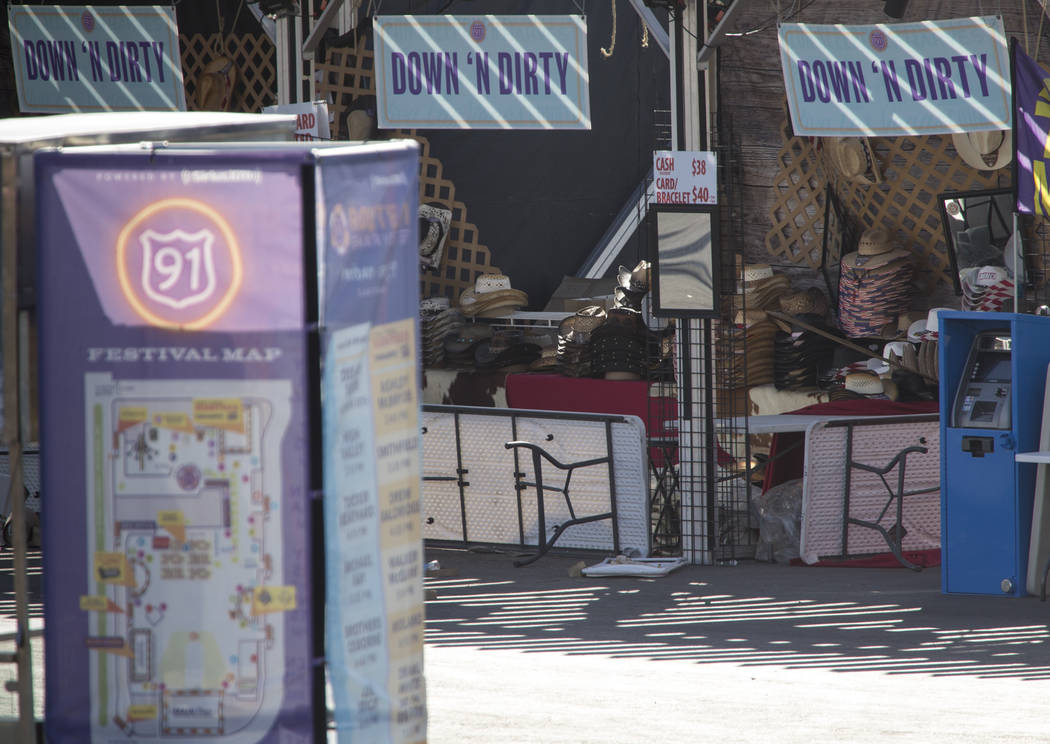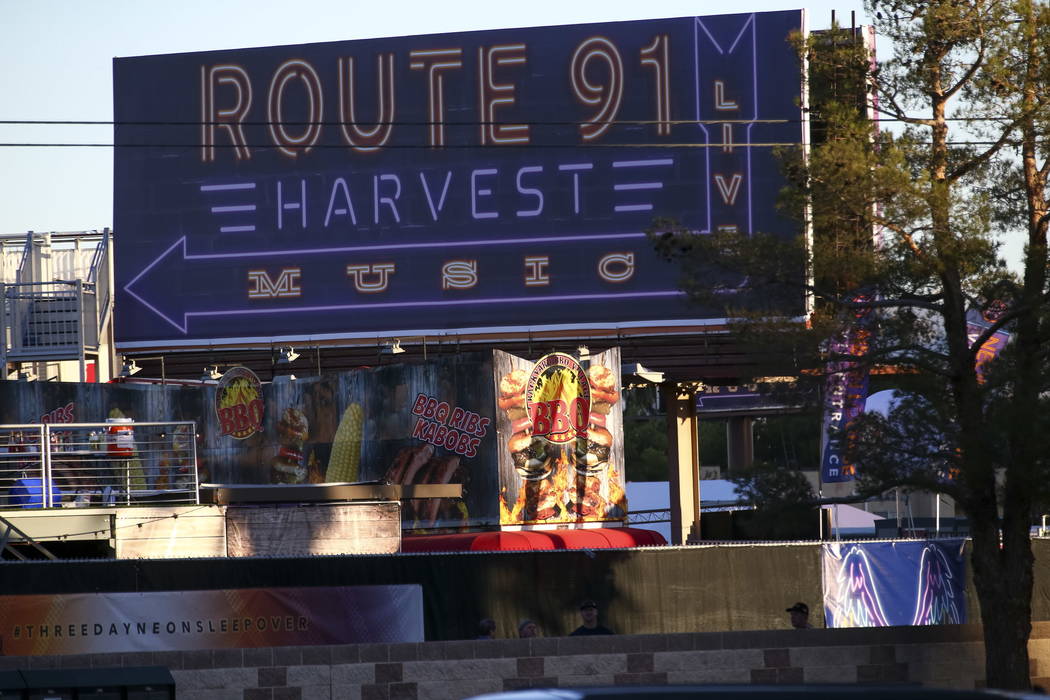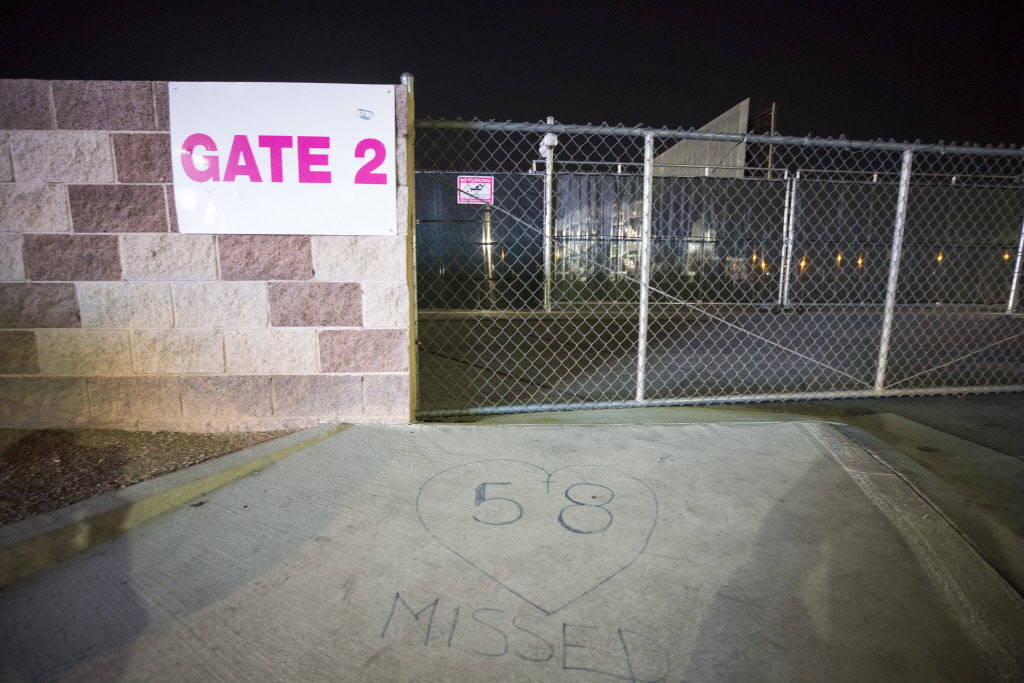Accounts of workers among newly released Las Vegas shooting records
She stood in the food truck on the Route 91 Harvest Festival grounds, chopping vegetables for kebabs. That night, the three-day festival would be over, and she’d finally have a chance to relax.
The woman, like most at the concert, thought of fireworks when she first heard the infamous popping the night of Oct. 1.
Unlike most at the Mandalay Bay festival grounds that night, the woman was one of several who worked at or near the concert that night who later shared their stories in Spanish or English with Las Vegas police. Their stories were among the witness statements and other records released Wednesday by police.
The food truck worker compared the festival with the Fourth of July until she peered through a window and found a blank sky.
The sound intensified, the woman said. It sounded like shrapnel.
“They’re shooting at us! They’re shooting at us!” she screamed to her co-workers, according to the account, which was written in Spanish. She took refuge in a cabinet before deciding to flee. She ran, then returned for her phone.
“If something happened to me,” she wrote, “I could say goodbye to my family.”
Dates on the accounts range from a few hours after the incident, to days after. Along with statements filed at police stations, some were faxed in with the help of Bilingual Behavioral Services, one of few counseling groups to offer mental health treatment in languages other than English.
The agency helped witnesses file police statements with the hope it would help shooting survivors get access to funds through the Nevada Victims of Crime Program for medical and mental health expenses, said clinical director and founder Ingrid Sanchez. The company took a loss after Oct. 1, she said, due to uncompensated care.
Of Bilingual Behavioral Services’ 32 providers, six or seven speak Spanish, Sanchez said.
“What I saw in the people that were working was most of them felt a responsibility to protect the people that were there enjoying themselves,” Sanchez said.
One man who was working the night of the shooting helped pile wounded people into trucks and on gurneys. Others hid in bathrooms or elevators or strangers’ hotel rooms.
The woman working inside the food truck made it home alive but riddled with traumatic images of blood, screams and death.
“In the days since, I’ve cried,” she wrote in her witness statement. “I can’t eat well. I don’t have friends. I want to be good, for my children, but I’m depressed. I feel guilty because I only thought about myself. I feel I could’ve done more to help, but I was too scared and now I am full of remorse.”
She lived. Others weren’t so lucky.
After helping wounded people into trucks, the man returned to the Tropicana, where he’d been hiding, in hopes of finding his friend. While on the hunt, he found two cellphones.
A man called looking for one, and the next day, they met. He hugged the worker tight, the worker wrote in Spanish. The man cried with so much emotion, it brought the worker to tears.
A girl accompanied the man who was picking up the cellphone.
“Who was the owner?” the worker asked her.
The man’s sister, she answered. She’d died.
“Esto me dio mucho tristeza,” the worker wrote at the end of his statement: This made me very sad.
Contact Jessie Bekker at jbekker@reviewjournal.com or 702-380-4563. Follow @jessiebekks on Twitter.
Related
Officers' reports illustrate chaos, confusion of Las Vegas shooting
Reports describe Las Vegas gunman's rental of downtown condos
Jason Aldean's statement shows actions at Las Vegas shooting
Las Vegas officer recalls efforts to reach shooter's hotel floor
Report says California officer was injured during Las Vegas shooting

























